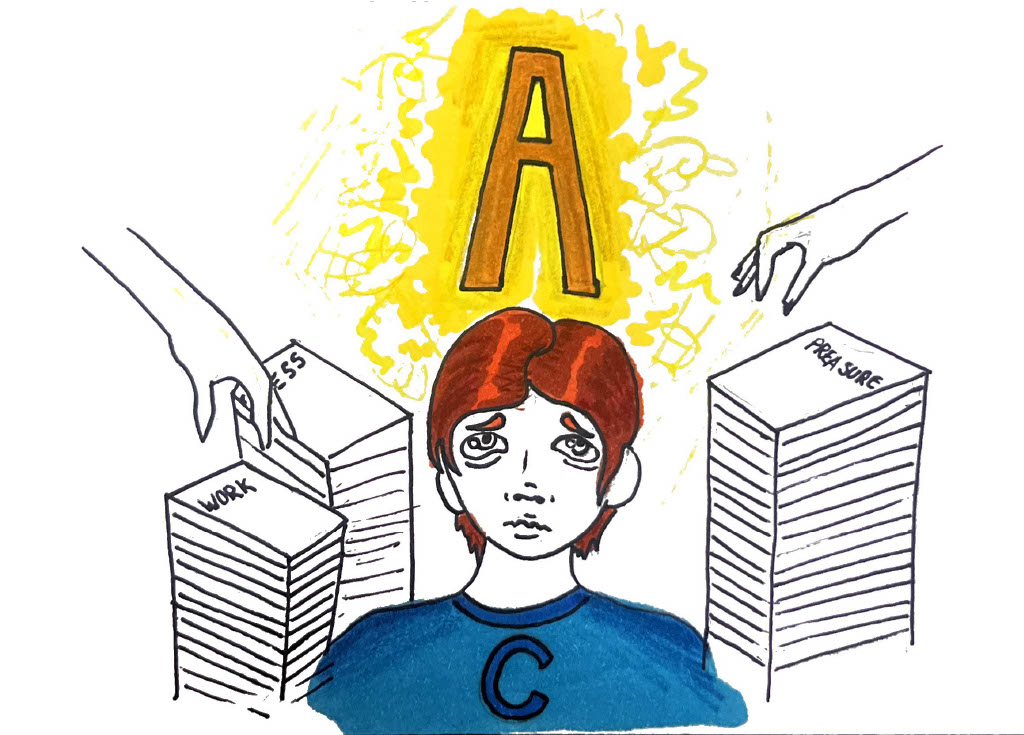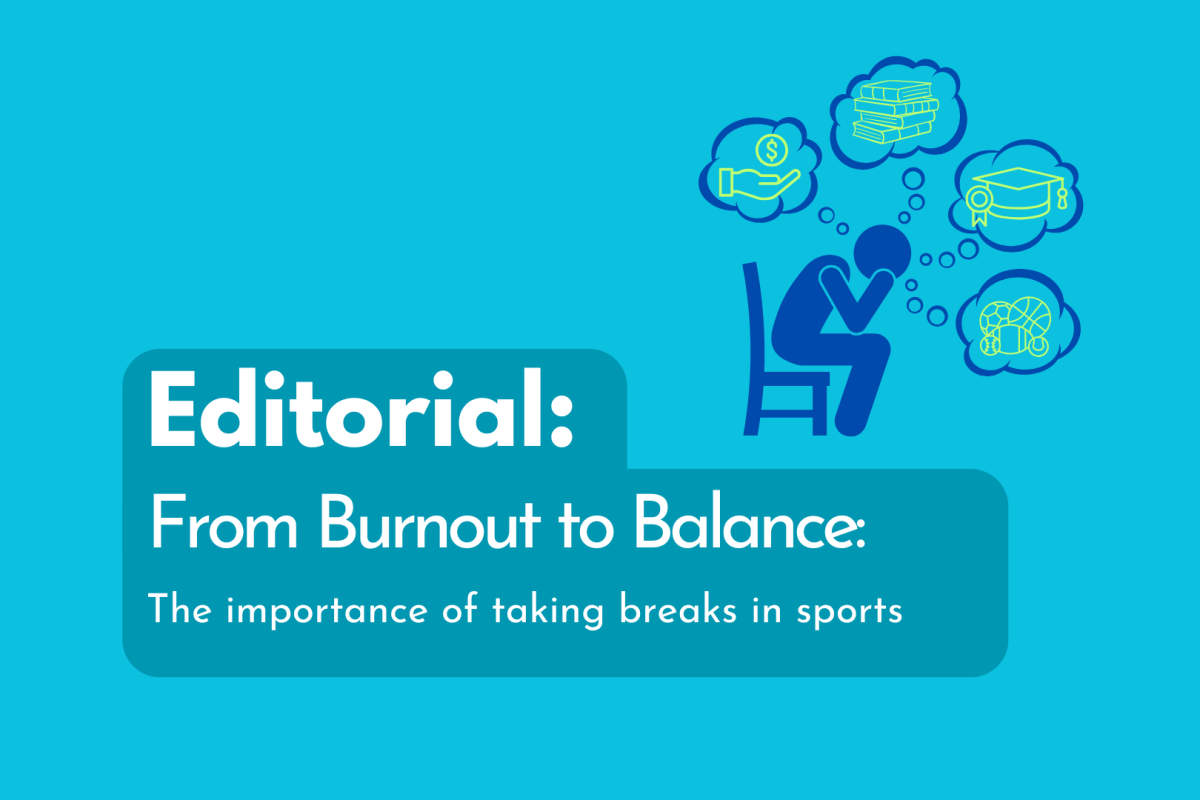Like a balloon filled with easy As that can raise our spirits, grade inflation can feel good. I have all As. I’m smart. I’m accomplished. I’m going to get into the school of my dreams.
But when reality hits and the balloon pops, a myriad of questions stream through students’ minds: Am I actually smart? What have I learned? Wait, even all those As didn’t get me into that dream school? With all of this grade inflation, what are we left with besides a falsely reported killer grade point average?
According to ACT, the non-profit organization that administers the exam by the same name, when studying the grades of high school students from across the nation the average GPA has risen in all subject areas in recent years. The ACT’s study found that “In a 12-year time frame [from 2010 to 2022], the average adjusted math GPA increased from 3.02 to 3.32, a 0.30 grade point change — the highest across all subjects.” That statistic only involves math classes, but according to the ACT CEO Janet Godwin, “While average GPAs have risen over the past 12 years across all core academic subjects, this has not corresponded with improvements in other measures of academic achievement.”
A 2023 study by University of Pennsylvania and University of Texas professors shows that increased grade leniency in North Carolina public schools led to a rise of the average GPA by .27 points between 2013 to 2019.
While grade inflation has been on the rise for years, the rise in grades was likely exacerbated by the pandemic. During such an isolating time, it was fair that students would be rewarded for merely submitting an assignment. However, that precedent normalized receiving high grades without much effort.
Another cause of grade inflation is that teachers may avoid the stress of upsetting students or their parents. Students and parents frequently take teachers to task for grades they don’t like. As English teacher Seth Czarnecki wrote in a commentary recently published by WBUR, “the frequency with which parents and students try to negotiate grades has increased since I started teaching 14 years ago.”
To keep everyone content, it may be easier to add participation points and free grade boosters across a term to keep grades high. No one complains about teachers who pass out high grades like candy, but the more rigorous grading practices of other teachers can lead to more complaints and ultimately more stress for a teacher who is already doing a challenging job. Because only some teachers may try to combat grade inflation and have their grades correlate with the quality of student work, we are left with a system that is inequitable.
Another reason for grade elevation is that grade inflation may benefit teachers because students receiving high grades may imply their teacher does a great job helping them achieve at a high level. As Czarnecki stated in his submission to WBUR, high grades give parents a sense that the teacher is adequately teaching their child.
Distracting GPAs aren’t extremely helpful in the long run, however, as standardized testing and knowledge of inflation at a particular school could deter an admissions officer from accepting a student. Colleges compare students within a high school to each other, and although Algonquin does not report class rank, the rising GPAs of all students may stop the most qualified Algonquin students from standing out against their peers.
Yes, despite putting in minimal effort, I’ve received high grades on projects or essays due to easy grading policies. However, it isn’t fair that higher achievers receive the same grades as those whose skills and work are at a lower level. Students who don’t deserve their high grades shouldn’t have to wonder why they struggle to get into top colleges. It isn’t fair for students to think they are exceptionally good at something when they actually aren’t.
Unfortunately, it seems that grade inflation has become the national standard and that it is a trend that can’t be changed. But what if we could change it at Algonquin?
It’s important to recognize that grades do not define us. Instead of looking at a grade lower than an A as a punishment or a failure, we should take a breath and look at it as an opportunity for growth. We also need to give ourselves the grace that if A truly means exceptional, it is unreasonable for us to be exceptional every single time.
Parents and guardians should try to shift to have the same mindset. Look at grades not as a reflection of a student’s effort or value, but as a marker of how they did on one assignment at one moment. Although it’s ok for parents to contact their child’s teachers with concerns, parents should try to keep the focus on learning, not grades.
Administration should take a close look at the reality of grade inflation in our school and facilitate conversations for teachers with a clearly stated organizational structure for handling grading complaints along with conversations with parents and students about what grades mean as part of the learning process.
Grade inflation can never be truly eliminated; even after the balloon is popped the helium will stay in the atmosphere. However, taking steps to deflate the balloon is accomplishable and necessary for the benefit of students and teachers alike.










